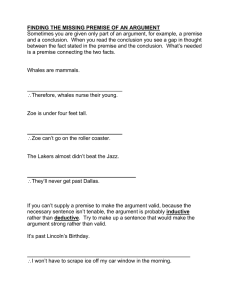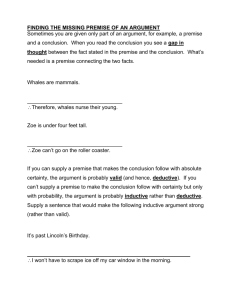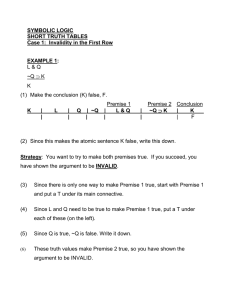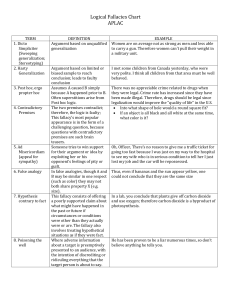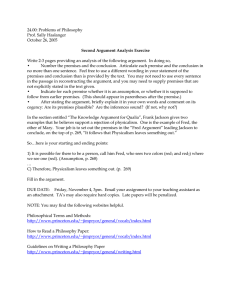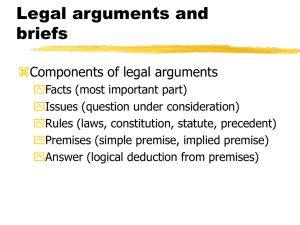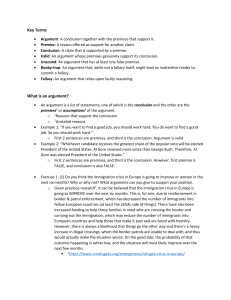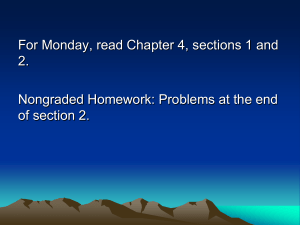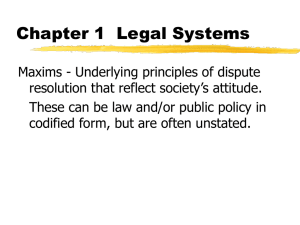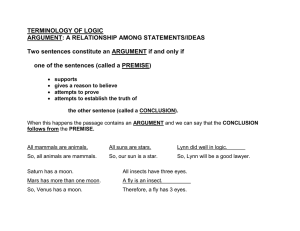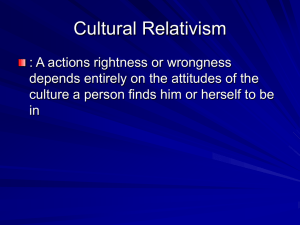TREE DIAGRAMS: Simple Vs
advertisement
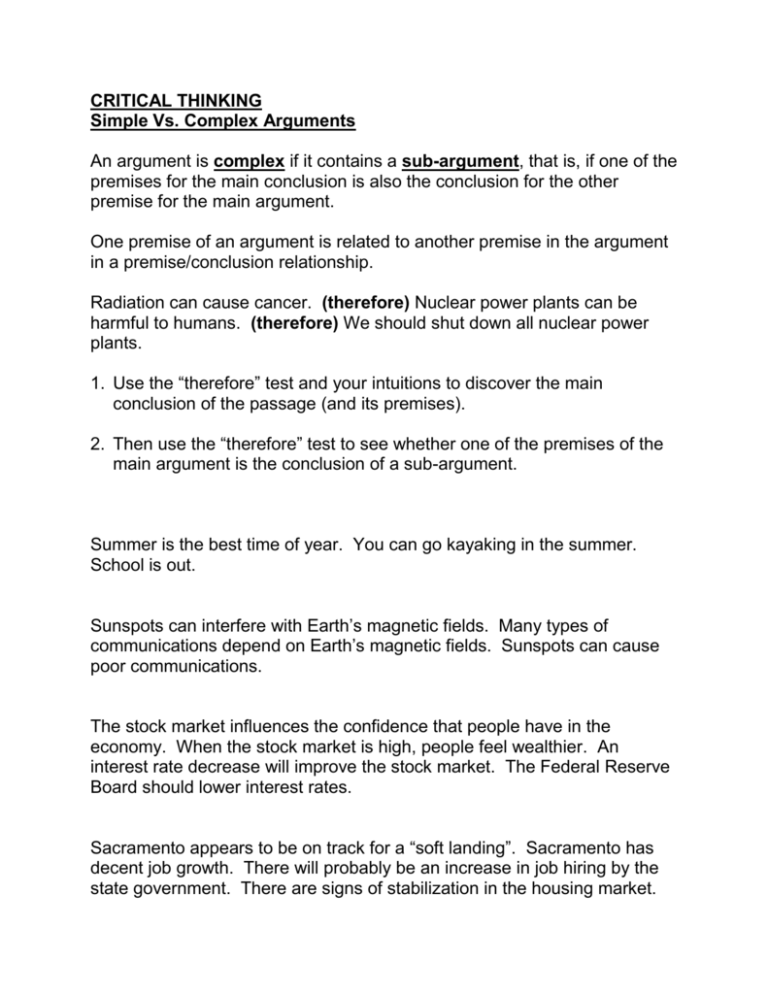
CRITICAL THINKING Simple Vs. Complex Arguments An argument is complex if it contains a sub-argument, that is, if one of the premises for the main conclusion is also the conclusion for the other premise for the main argument. One premise of an argument is related to another premise in the argument in a premise/conclusion relationship. Radiation can cause cancer. (therefore) Nuclear power plants can be harmful to humans. (therefore) We should shut down all nuclear power plants. 1. Use the “therefore” test and your intuitions to discover the main conclusion of the passage (and its premises). 2. Then use the “therefore” test to see whether one of the premises of the main argument is the conclusion of a sub-argument. Summer is the best time of year. You can go kayaking in the summer. School is out. Sunspots can interfere with Earth’s magnetic fields. Many types of communications depend on Earth’s magnetic fields. Sunspots can cause poor communications. The stock market influences the confidence that people have in the economy. When the stock market is high, people feel wealthier. An interest rate decrease will improve the stock market. The Federal Reserve Board should lower interest rates. Sacramento appears to be on track for a “soft landing”. Sacramento has decent job growth. There will probably be an increase in job hiring by the state government. There are signs of stabilization in the housing market.
